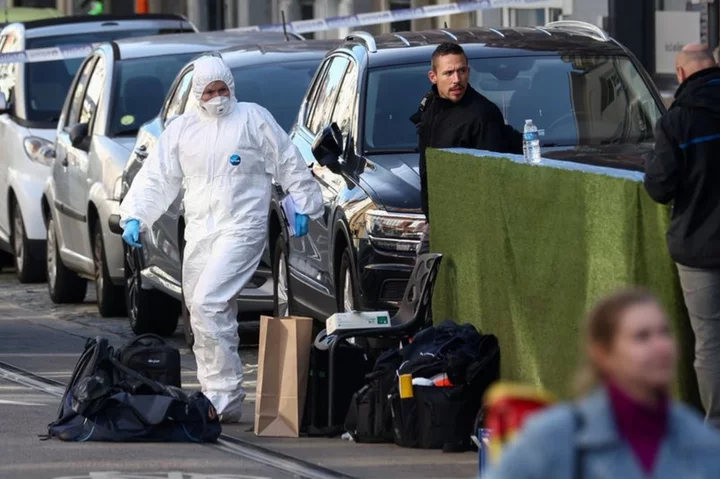By Gabriela Baczynska and Alvise Armellini
BRUSSELS/ROME A deadly Islamist attack in Belgium by a rejected asylum-seeker from Tunisia who earlier lived in Italy and Sweden has underlined security gaps and failed returns policies, which have spurred an EU push to overhaul its troubled migration system.
Monday's shooting came at a time of heightened security concerns across Europe linked to the Israel-Hamas war.
It also coincided with alarm sounded by countries including Italy and Germany over increasing unauthorised arrivals of migrants as the 27-nation EU seeks to agree tighter migration and asylum rules ahead of a bloc-wide election next June.
The man, suspected of killing two Swedish football fans before being shot dead by police, first applied for asylum in Belgium in 2019, according to its Immigration Office. He lost his case in October 2020 and, the following March, was issued an order to leave Belgium.
But the authorities had no valid address to deliver the decision, which bounced back from an old address, with no correct address to be found.
"He had in fact been ordered to leave the territory. He was not in an asylum centre, he was in Brussels, he no longer had a home, and therefore the services were not able to follow him. And this is one of the big questions to which I want answers," said Belgian Prime Minister Alexander de Croo.
Obstacles to repatriating migrants deemed to have no right to stay in the EU will be on the table when the bloc's 27 justice and home affairs ministers meet in Brussels - scene of the shooting and also home to EU institutions - on Thursday and Friday.
There were some 86,000 returns in 2022, according to EU border agency Frontex, unchanged from the previous year despite much discussions about the need to step them up.
Of the 105,865 non-EU citizens that had been ordered to leave the bloc, statistics agency Eurostat said earlier this month that some 26,600 people were sent away in the second quarter of 2023, a nearly one-third increase on the year.
But problems with what the EU says is poor cooperation from origin countries hinder progress.
"It has become painfully clear that our security services clash with the unwillingness of certain North African countries to take back their illegals. The price we pay for that... is too high," said Belgian Justice Minister Vincent Van Quickenborne.
Specifically for Tunisia, a recent EU deal offering money and assistance in exchange for Tunis keeping a tighter lid on departures for Europe has been off to a bumpy start, something EU leaders are to discuss at a summit in Brussels on Oct. 26-27.
ITALY, SWEDEN, BELGIUM
How and why Monday's gunman continued living in Belgium illegally is one question. Another is when and how he arrived and from where, something Belgium's Immigration Office on Tuesday said it had no information about.
An Italian government source told Reuters the man had arrived on the Italian island of Lampedusa, near Tunisia, in 2011 and spent some time in Sweden too.
With at least three EU countries involved, the case points up the challenges the EU faces tracking people across the bloc's Schengen open-travel zone that is mostly free of border checks.
Proponents of the EU's new migration pact - which has been tentatively agreed by most EU countries and is now being further negotiated with the European Parliament - say it would support returns by shortening time for migration and asylum procedures.
Critics doubt it can be effective, and point to human rights risks. The nationalist governments in Poland and Hungary refuse to support it, or to accept any migrants from the Middle East and Africa.
"Those who are not allowed to stay in the EU must leave Europe. That must be enforced," said Manfred Weber, the head of the centre-right European People's Party group in the European Parliament. "This is a wake-up call for those who are not ready to accept ... the migration pact."
(Additional reporting by Marine Strauss, Bart Meijer in Brussels, Angelo Amante in Rome, Writing by Gabriela Baczynska; editing by Mark Heinrich)

